15 start with O start with O
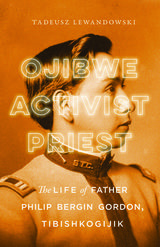
Drawing on previously unexplored materials, Tadeusz Lewandowski paints a portrait of a contentious life. Ojibwe, Activist, Priest examines Gordon's efforts to abolish the Bureau of Indian Affairs, his membership in the Society of American Indians, and his dismissal from his Ojibwe parish and exile to a tiny community where he'd be less likely to stir up controversy. Lewandowski illuminates a significant chapter in the struggle for Native American rights through the views and experiences of a key Native progressive.

The Book of Pastoral Rule, or Liber regulae pastoralis, by Pope Gregory the Great—the pontiff responsible for the conversion of the English to Christianity beginning in 597—is a guide for aspiring bishops. Pope Gregory explains who ought and who ought not seek such a position and advises on what sort of spiritual guidance a bishop should provide to those under his direction.
The Old English Pastoral Care, a translation of Gregory’s treatise completed between 890 and 896, is described in a prefatory letter by King Alfred the Great as his own work, composed with the assistance of his bishops and chaplains. It appears to be the first of the Alfredian translations into Old English of Latin texts deemed necessary for the revitalization of the English Church, which had been ravaged by the depredations of Scandinavian invaders during the ninth century and by the decline of clerical competence in Latin.
This new edition and translation into modern English is the first to appear in a century and a half.
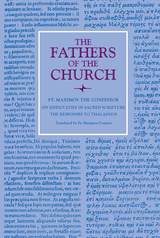
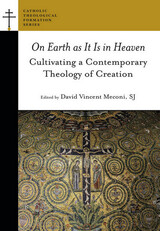
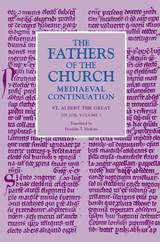
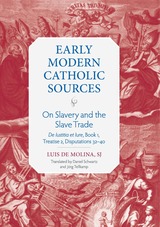
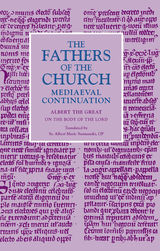
The overall movement of the treatise follows the order of God’s wisdom. Albert begins by discussing the Eucharist as a gift flowing from the goodness of the Trinity. He touches on its relation to redemption and the Church, including a rigorous Aristotelian analysis of Eucharistic change and presence before ending with a discussion of Mass rubrics. The most significant theological emphasis is on the Eucharist as food given to feed the people of God.
The style varies to suit the content: certain sections are terse; others are devotional, allowing the reader to enter the saint’s own prayer. Perhaps most characteristically Albertine is an extended meditation that compares the process of digestion to the incorporation of the Christian into the Body of Christ. The mixed style allows this work to integrate rigorous aspects of scholastic thought with a fervent love for God, making On the Body of the Lord one of Albert’s most human as well as one of his most beautiful works.
On the Body of the Lord was well received, particularly in areas that came to be influenced by the devotio moderna. By 1484, three separate Latin editions had been printed, two of which were the inaugural works on new presses. In the following century the Protestant Reformation brought an end to its popularity. On the Body of the Lord is here translated into English for the first time.

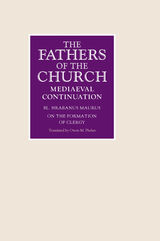

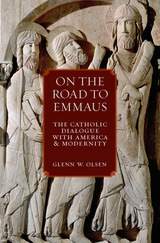
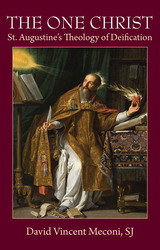
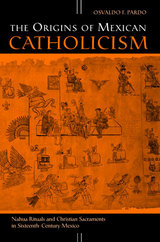
---Fernando Cervantes, Bristol University, UK
"Pardo does an excellent job of balancing and contrasting sixteenth-century Catholic theology with Nahua thought and belief."
---John F. Schwaller, University of Minnesota
At first glance, religious conversion may appear to be only a one-way street. When studying sixteenth-century Mexico, one might assume that colonial coercion was the driving force behind the religious conversion of the native population. But The Origins of Mexican Catholicism shows how Spanish missionaries instead drew on existing native ceremonies in order to make Christianity more accessible to the Nahua population whom they were trying to convert.
Osvaldo F. Pardo explains that religious figures not only shaped native thought, but that indigenous rituals had an impact on the religion itself. This work illustrates the complex negotiations that took place in the process of making the Christian sacraments available to the native peoples, and at the same time, forced the missionaries to reexamine the meaning of their sacraments through the eyes of an alien culture.
For Spanish missionaries, ritual not only became a focus of evangelical concern but also opened a window to the social world of the Nahuas. Missionaries were able to delve into the Nahua's notions of self, emotions, and social and cosmic order. By better understanding the sociological aspects of Nahua culture, Christians learned ways to adequately convey their religion through mutual understanding instead of merely colonial oppression.
Given its interdisciplinary approach, this book will be of interest to specialists in Latin American intellectual and literary history, the history of religion, and anthropology, and to anyone interested in cross-cultural processes.

Charles E. Curran presents the first in-depth analysis of the origins of Catholic moral theology in the United States, focusing on three significant figures in the late nineteenth century and demonstrating that methodological pluralism and theological diversity existed in the Church even then.
Curran begins by tracing the historical development of moral theology, especially as presented in nineteenth-century manuals of moral theology, which offered a legal model of morality including a heavy emphasis on canon law. He then probes the different approaches and ideas of three important writers: Aloysius Sabetti, a Jesuit who was a typical, as well as the most influential, American manualist; Thomas J. Bouquillon, first chair of moral theology at Catholic University of America, a neoscholastic who criticized the manuals' approach as narrow and incomplete for failing to address principles, virtues, and the connection to systematic theology; and clerical educator John B. Hogan, a casuist who developed a more inductive and historically conscious methodology.
Curran describes how all three men dealt in different ways with the increasing role of authoritative teachings in moral theology from the Vatican. He also shows how they reflected their American context and the views of their own time on women and sexuality.
So little attention has been paid to the development of moral theology in this country that these authors are unknown to many scholars. Curran's book corrects this oversight and proposes that the ferment revealed in their writings offers important lessons for contemporary Catholic moral theology.
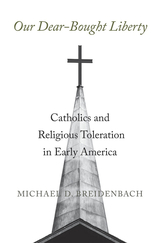
How early American Catholics justified secularism and overcame suspicions of disloyalty, transforming ideas of religious liberty in the process.
In colonial America, Catholics were presumed dangerous until proven loyal. Yet Catholics went on to sign the Declaration of Independence and helped to finalize the First Amendment to the Constitution. What explains this remarkable transformation? Michael Breidenbach shows how Catholic leaders emphasized their church’s own traditions—rather than Enlightenment liberalism—to secure the religious liberty that enabled their incorporation in American life.
Catholics responded to charges of disloyalty by denying papal infallibility and the pope’s authority to intervene in civil affairs. Rome staunchly rejected such dissent, but reform-minded Catholics justified their stance by looking to conciliarism, an intellectual tradition rooted in medieval Catholic thought yet compatible with a republican view of temporal independence and church–state separation. Drawing on new archival material, Breidenbach finds that early American Catholic leaders, including Maryland founder Cecil Calvert and members of the prominent Carroll family, relied on the conciliarist tradition to help institute religious toleration, including the Maryland Toleration Act of 1649.
The critical role of Catholics in establishing American church–state separation enjoins us to revise not only our sense of who the American founders were, but also our understanding of the sources of secularism. Church–state separation in America, generally understood as the product of a Protestant-driven Enlightenment, was in key respects derived from Catholic thinking. Our Dear-Bought Liberty therefore offers a dramatic departure from received wisdom, suggesting that religious liberty in America was not bestowed by liberal consensus but partly defined through the ingenuity of a persecuted minority.
READERS
Browse our collection.
PUBLISHERS
See BiblioVault's publisher services.
STUDENT SERVICES
Files for college accessibility offices.
UChicago Accessibility Resources
home | accessibility | search | about | contact us
BiblioVault ® 2001 - 2024
The University of Chicago Press









